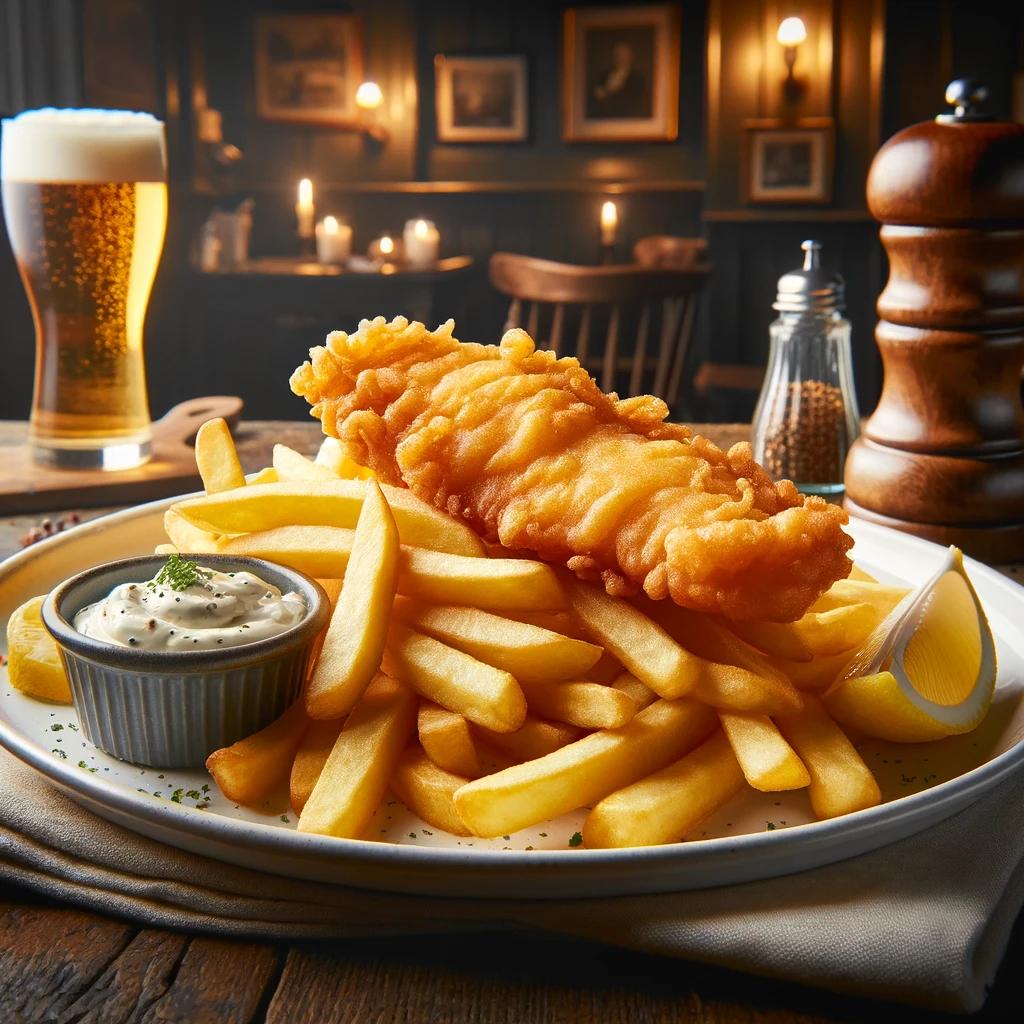Introduction
Fish and chips have long stood as a hallmark of British culinary tradition, transcending its humble origins to become a global phenomenon. This dish, consisting of fried fish and hot chips, offers a delightful crunch and satisfying taste that has captured the hearts of food lovers worldwide. In this article, we delve into the essence of fish and chips, exploring its history, variations, and the art of crafting the perfect serving. Additionally, we will address common queries surrounding this beloved dish, including health considerations, the best fish varieties for frying, its British roots, and tips for avoiding soggy outcomes.
The Origin and Evolution of Fish and Chips
The story of fish and chips is a tale of culinary fusion, dating back to the 19th century. The fried fish concept was introduced to Britain by Jewish immigrants from Spain and Portugal, while chips (fried potatoes) have Belgian or French origins. It was in Britain that these two components were first combined, leading to the birth of a dish that would become a staple of British cuisine. The first fish and chip shop is believed to have opened in London in 1860, paving the way for the dish’s popularity to soar.
Crafting the Perfect Fish and Chips
Choosing the Right Fish
The key to mouthwatering fish and chips lies in selecting the right type of fish. Cod and haddock are the traditional choices, prized for their flaky texture and mild flavor. However, other varieties such as pollock, flounder, and tilapia also make excellent alternatives.
The Batter
A crispy, light batter is essential for the perfect fry. The batter can be made from a simple mixture of flour, water, and a pinch of baking soda, or beer can be added for extra lightness and flavor.
Frying the Chips
The chips, or fries, should be thick-cut and fried twice: once at a lower temperature to cook through, then again at a higher temperature to achieve a golden, crispy exterior.
Serving Suggestions
Fish and chips are traditionally served wrapped in paper to absorb excess oil, accompanied by tartar sauce, mushy peas, or a simple wedge of lemon. Vinegar, particularly malt vinegar, is also a classic condiment.
Addressing Common Queries About Fish and Chips
Are Fish and Chips Healthy?
While delicious, fish and chips are high in calories and fat due to the frying process. For a healthier version, opt for oven-baked chips and pan-fry the fish in a minimal amount of oil.
Which Fish is Best for Fish and Chips?
Cod and haddock are the top choices for authentic fish and chips due to their flaky texture and mild taste. These species hold up well to frying and are widely available.
Are Fish and Chips a British Dish?
Yes, fish and chips are quintessentially British, originating from the UK in the 19th century. This dish has since become a symbol of British food culture, enjoyed by millions across the globe.
Why Are My Fish and Chips Soggy?
Sogginess can result from frying at too low a temperature or overcrowding the fryer. Ensure the oil is hot enough (ideally between 350°F to 375°F) and fry in batches to maintain temperature and crispness.
Conclusion
Fish and chips are more than just a meal; they are a cultural icon that represents the simplicity and heartiness of British cuisine. Whether enjoyed by the seaside, in a bustling city, or at home, fish and chips are a beloved choice for many. By understanding the history, techniques, and best practices behind this dish, you can elevate your fish and chips experience, making every bite a delightful journey through taste and tradition.
FAQs
- Are fish and chips healthy? Moderation is key, but healthier versions can be made by baking and using less oil.
- Which fish is best for fish and chips? Cod and haddock are the traditional and most popular choices.
- Is fish and chips a British dish? Absolutely, with its origins deeply rooted in 19th-century Britain.
- Why are my fish and chips soggy? Avoid sogginess by ensuring the oil is hot enough and not overcrowding the fryer.
